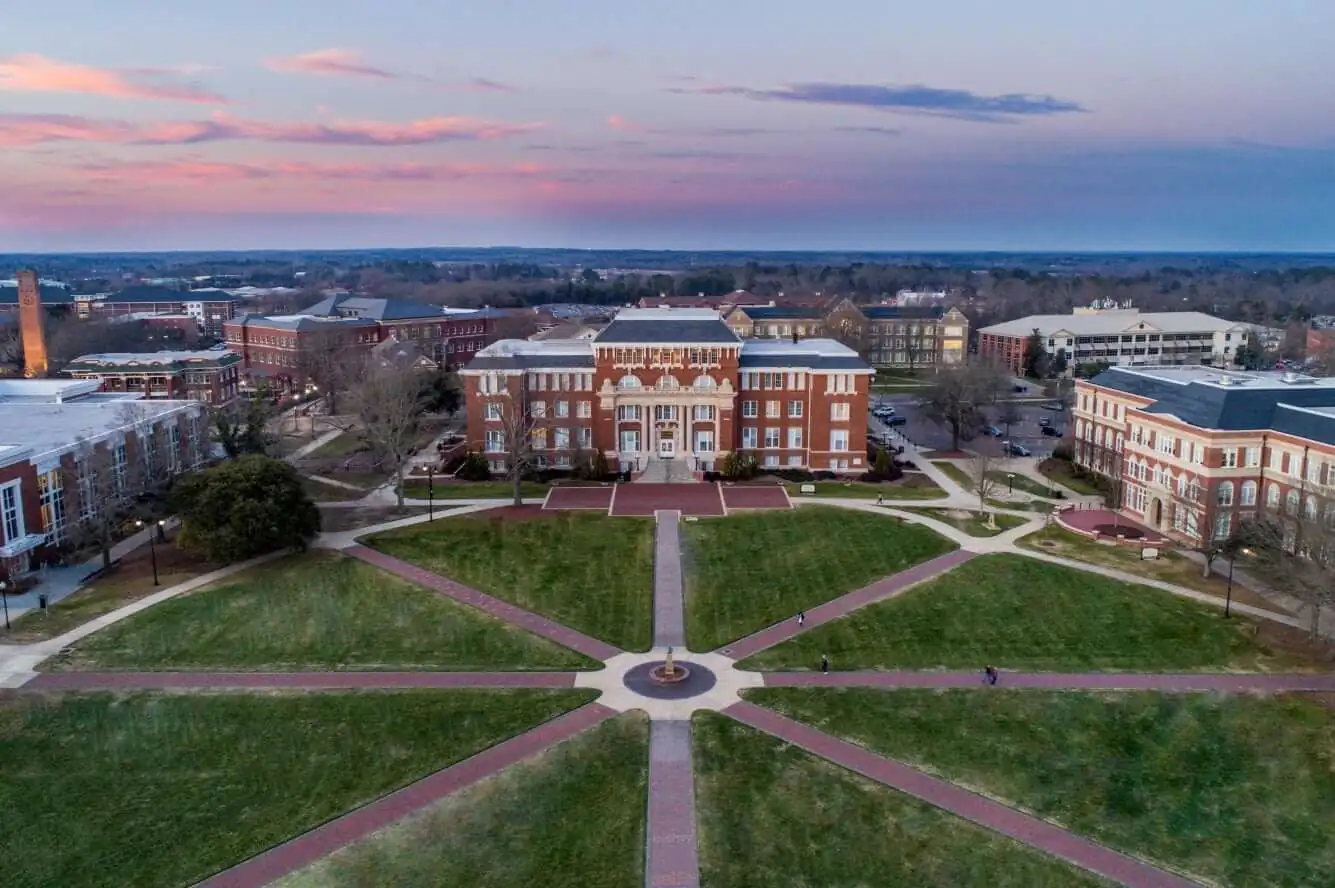Alumni & Advancement
Transforming Alumni Engagement: Strategies for Building Data-Driven Philanthropy
Harnessing Campus Partnerships and Data to Deepen Alumni Connections Georgia Tech, known for its robust alumni network of over 200,000 […]
Solutions
Helping higher education create transformational change across campus.
See AllFor Universities
Admissions & Enrollment
Maximize enrollment by increasing yield & reducing melt
Experiential Learning
Scale High-Impact Practices for student success
PathwayU
Redefine how students pick majors & careers with PathwayU
Student Success
Increase retention & persistence to graduation
Career Services
Improve career readiness & career navigation
Industry Partners
Connect universities & corporations for project-based learning
Alumni & Advancement
Grow alumni engagement & the philanthropy pipeline
Success Stories
Read how schools leverage PeopleGrove in their communities.
See All Stories
University of Kansas
How University of Kansas scales career services to their 375,000 alumni

Michigan State University
How Michigan State ensures academic and career success for students

University of Miami
How the Toppel Career Center joined forces with alumni to provide career guidance to students
Resources
Explore blogs, webinars, whitepapers, and more resources to enhance how students and alumni connect.
See All ResourcesBlog
Read posts about how PeopleGrove meets higher education’s ever-changing needs at every turn.
Events
In-person or online, join PeopleGrove for unmatched experiences, conferences, webinars, and more.
Research Library
A collection of stories, events, research, and best practices to transform learners’ experiences.
Super Mentors Book
The ordinary person’s guide to asking extraordinary people for help.
Innovators Community
Learn from thought leaders and practitioners in both higher education and workforce development.
About
PeopleGrove is made for learners by learners. Everyone here makes it possible for students and alumni to succeed.
Learn MoreCareers
Be a part of the next big thing for learners everywhere and start making an impact. Join us today!
Contact
Want to get in touch? Have a question? We’d love to hear from you. Connect with us.
Alumni & Advancement
Harnessing Campus Partnerships and Data to Deepen Alumni Connections Georgia Tech, known for its robust alumni network of over 200,000 […]

Harnessing Campus Partnerships and Data to Deepen Alumni Connections
The following is a summary of the presentation, which can alternatively be watched in full and on-demand here.
Alumni engagement is evolving, and institutions need strategies that not only reduce donor fatigue but also foster deeper connections with alumni. On September 26, 2024, PeopleGrove hosted a webinar featuring insights from Dartmouth College and Georgia Tech. The discussion focused on three main strategies: fostering impactful alumni experiences, utilizing campus partnerships, and employing data to guide decision-making. Here are three key takeaways from the discussion to help transform your institution’s approach:
Many institutions have struggled with donor fatigue. According to the 2023 CASE Alumni Giving Insights report, 72% of alumni experience solicitation fatigue—leading to a reduced desire to engage with their alma mater(CASE). To counter this, Dartmouth and Georgia Tech have focused on providing alumni with opportunities beyond financial asks.
For example, Dartmouth’s Alumni-to-Alumni Practice Interviewing program allows alumni to volunteer their time and expertise, creating a more personal and impactful engagement experience. By offering these kinds of tangible, career-related initiatives, institutions can foster stronger, long-lasting relationships with alumni.

Internal partnerships are crucial for scaling alumni engagement efforts. Georgia Tech has successfully used PeopleGrove’s Groups feature to engage geographically dispersed alumni and bring campus departments into the alumni network. Their Letter Winners Program—connecting student-athletes with alumni—illustrates how campus partnerships can drive more targeted, meaningful engagement.
These initiatives allow alumni to remain involved with the programs they care most about, such as athletics, while benefiting from mentorship and networking.
Georgia Tech and Dartmouth have used data to set realistic goals and measure success. Quarterly reporting on metrics such as response rates and alumni engagement allows these institutions to track progress and make informed decisions.
Dartmouth, for example, uses this data to adjust engagement strategies and refine its mentorship programs, ensuring that alumni feel involved in ways that align with their interests. According to the 2022 CASE report, this kind of personalized outreach has contributed to a 10.2% increase in alumni giving, showing that data-driven strategies can significantly impact long-term support (CASE).
The on-demand video version of this presentation from Georgia Tech’s Vice President of Engagement, Janet Kennard, and Dartmouth College’s Associate Director of Dartmouth for Life, Liz Foster, offers valuable guidance for other institutions looking to transform alumni engagement through data-driven strategies. Their insights into combating donor fatigue, building campus partnerships, and leveraging data to drive alumni involvement are essential for universities aiming to enhance long-term engagement and giving. For institutions eager to deepen connections with their alumni and create sustainable philanthropic pipelines, this webinar serves as an essential resource.
Browse more research and insights.

College to Career
Scaling Student-to-Alumni Engagement Scaling Engagement Across the Student-to-Alumni Lifecycle: Creating Meaningful Connections and Driving Philanthropic Impact IntroductionIn the evolving landscape […]
4 min read

Networking & Mentorship
Scaling Mentorship Scaling Mentorship: Why Every Institution Should Invest in Formal Mentorship Programs Mentorship is more than a student support […]
5 min read

Connect Classroom to Career
Integrate Career Preparation into Academic Experiences Le Moyne College is a private Jesuit institution in Syracuse, New York, serving over […]
5 min read